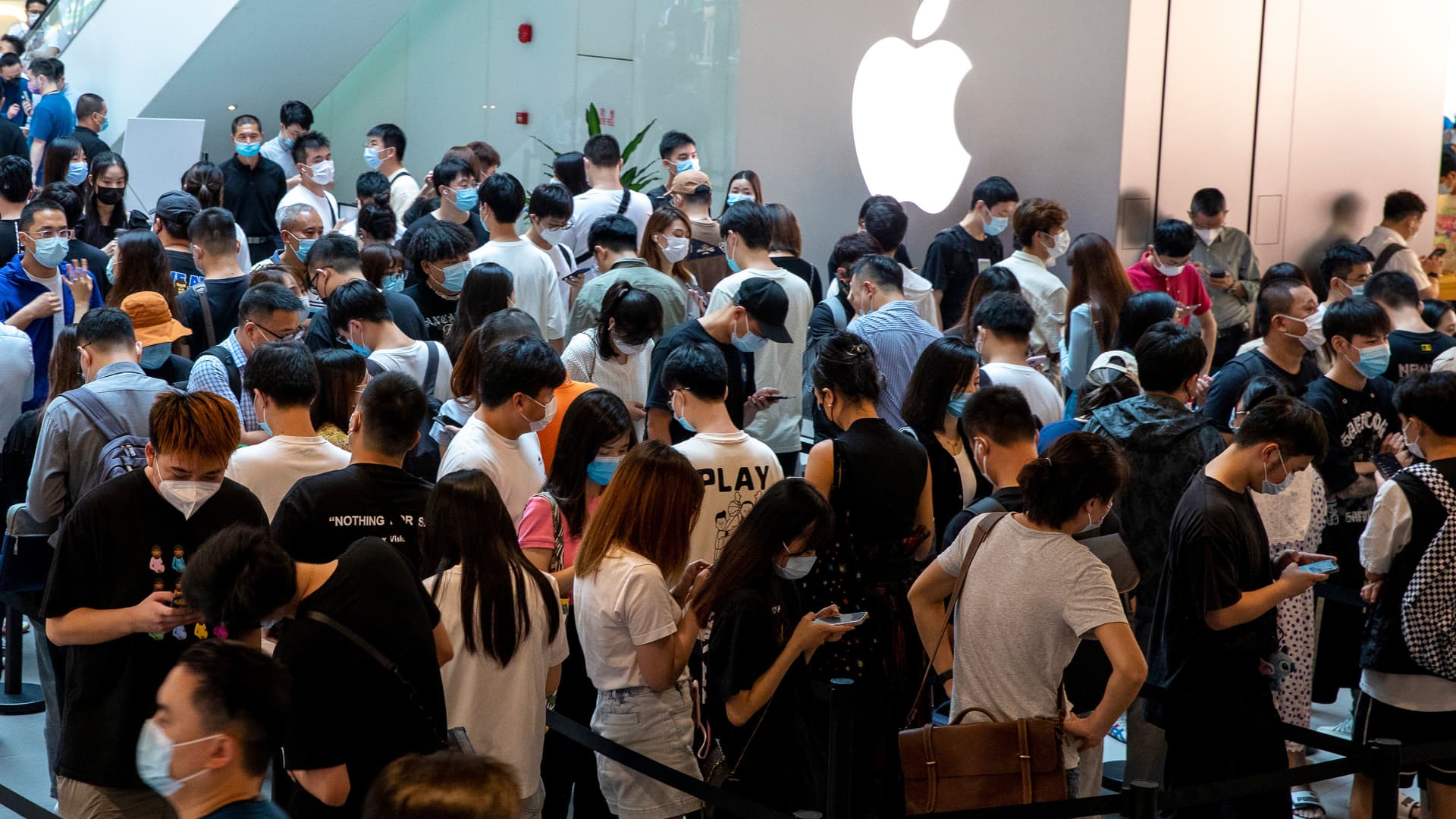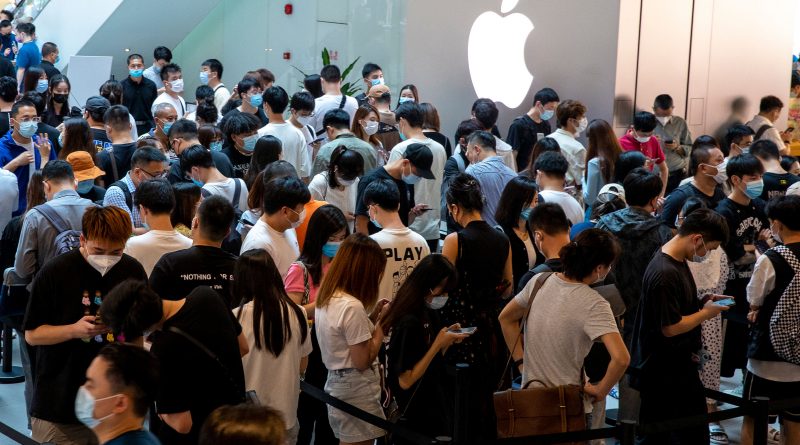iPhone 15 sales look like they’re starting off slow in China ahead of a critical holiday season

Customers line up to enter an Apple store as iPhone 14 series go on sale on September 16, 2022 in Shanghai, China.
VCG | Visual China Group | Getty Images
A month after Apple’s latest iPhones came out, analysts and investors are starting to see signs of slow demand in China versus last year’s models.
Sales of Apple’s iPhone 15 models in their first 17 days are down 4.5% in China versus last year, according to an estimate from Counterpoint Research. Unit sales of the higher-end Pro Max and Pro are down 14% and 11% versus last year, according to the estimate.
Wall Street analysts also point to shorter shipping times on Apple’s website, suggesting that either demand has fallen or supply has greatly increased. Jeffries analysts say that “weak demand” in China has knocked Apple off the top spot for smartphone market share in the country.
China is Apple’s third-largest market after North America and Europe, and the apparent sluggish start comes after a few news stories that have some analysts fretting over the iPhone maker’s outlook in the country.
Huawei has returned to the high-end smartphone market in China after a few years where it was mostly absent, as U.S. trade restrictions made it hard to get certain parts necessary for building phones.
Last month, some Chinese government agencies reportedly banned iPhones for work, raising questions about Apple’s brand in the country.
Apple CEO Tim Cook is spending time in China this week, his second visit of the year. He’s visiting Apple stores, suppliers, and Chinese officials. Apple also released a new iPad model this week specifically for China that works with the country’s carriers.
It’s a tough smartphone market for everyone. Smartphones sales are down around the world, on pace for the lowest shipment total in a decade, and they’re specifically down in China because of macroeconomic concerns.
“Apple, we suspect, could be down five-ish percent — and the China market is down at least 5%,” Counterpoint research director Jeff Fieldhack told CNBC. “It’s basically holding serve in a down market.” He stressed that U.S. demand, according to Counterpoint’s data, is strong and is making up for some of the Chinese shortfall.
All eyes on holiday quarter
Investors are eager to see Apple return to growth this holiday season after three straight quarters of declining overall sales. Data points from Apple officials in July point to falling growth yet again in the quarter ended Sept. 30.
Apple will reveal its September quarter results on Nov. 2, and executives will likely give some data points about how the holiday quarter is firming up, and whether it’s returning to growth. The holiday season is Apple’s busiest of the year, and the first full quarter to include iPhone 15 sales — the September quarter only included a few days where the latest iPhones were sold.
Analysts often use shipping times — how many days Apple is estimating it will take to ship a new iPhone — on Apple’s website to infer demand. These wait times are lower across the board than they were a year ago, especially in China, according to recent analyst notes from UBS, JP Morgan, and Bank of America.
Bank of America analysts say that the lower ship times reflect improving supply, not slipping demand.
But that’s at odds with Morgan Stanley analyst Erik Woodring, who said that the bank is slashing its December quarter estimates and target price for the stock because of it believes that limited supply will push some iPhone sales to the first quarter of 2024.
Adding to the concern among investors is that Apple’s other products won’t make up any iPhone shortfall. Apple’s Mac and iPad lineups haven’t gotten a major update yet this year. New models usually stoke demand, and the Chinese iPad announced this week was a very minor update. TFI Securities analyst Ming-Chi Kuo says that MacBook sales could crater as much as 30% in 2023 versus last year.
One event that could signal how well Apple is doing in China is “Singles Day,” a major shopping holiday taking place on November 11, where iPhones will likely be slightly discounted to boost sales.
“That’s a big deal. They do a lot of sales and that will be a good harbinger of what the Q4 will be in China,” Fieldhack said.
Source – CNBC




